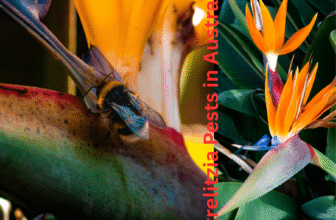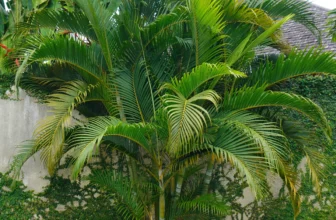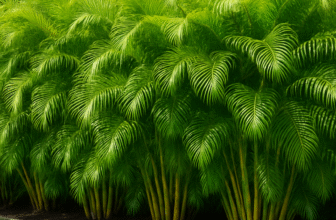Golden Cane Palm varieties(Dypsis lutescens) are a tropical favourite across Australia, known for their golden stems, elegant arching fronds, and easy care.
These amazing plants add instant greenery to both indoor and outdoor spaces. More specifically, Golden cane palms are pet-safe, drought-tolerant, and fast-growing.
While often seen as a single plant type, Golden Cane Palms come in various sizes and styles—ideal for hedging, pots, privacy screens, or tropical landscaping.
Let’s explore the variety, features, and planting ideas for Golden Cane Palms in Australia.
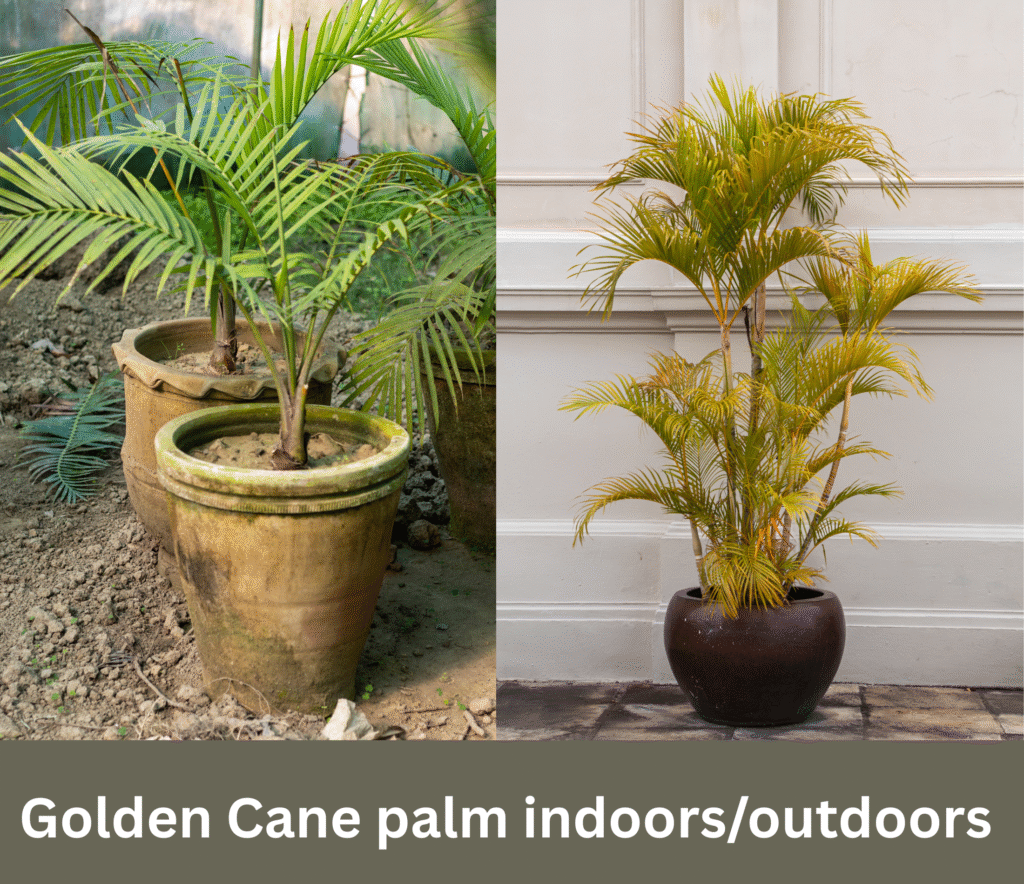
Click here where and how to plant Golden Cane Palm
What Is a Golden Cane Palm?
Also called Areca Palm, Butterfly Palm, or Yellow Palm, the Golden Cane Palm varieties are native to Madagascar but grow beautifully across Queensland, New South Wales, the Northern Territory, Western Australia, and even parts of South Australia.
What sets it apart?
- Bright golden-yellow stems
- Feathery, arching fronds
- Multi-stemmed clumping growth
- Fast-growing and easy-care
Is There More Than One Golden Cane Palm?
Technically, there is only one species: Dypsis lutescens. But in Australian nurseries and homes, you’ll find it in different forms, shapes, and sizes depending on how it’s grown and used.
Here are the most common Golden Cane Palm varieties:
1. Standard Golden Cane Palm (Dypsis lutescens)
This is the classic version you see in most gardens and landscapes.
Grows 4–8 metres tall
Perfect for privacy screens, driveways, or poolside planting
Loves morning sun and dappled afternoon shade
Tolerates humidity and coastal winds
💡 Great for: Large gardens, tropical themes, hedging.
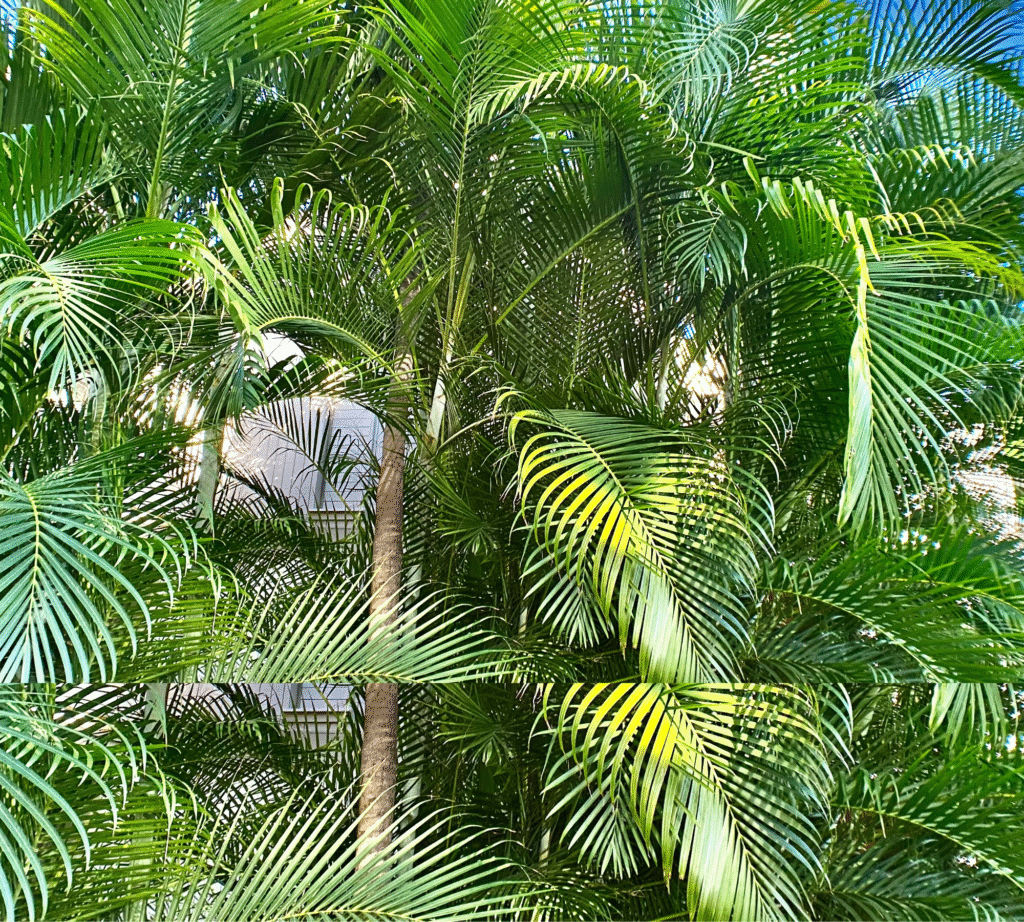
2. Dwarf Golden Cane Palm (Young, Pruned or Potted)
This is the same plant, but grown in pots or trimmed regularly to stay compact.
Stays under 2 metres in height
Ideal for balconies, patios, or indoor corners
Responds well to container gardening
💡 Great for: Apartment dwellers, small courtyards, renters.
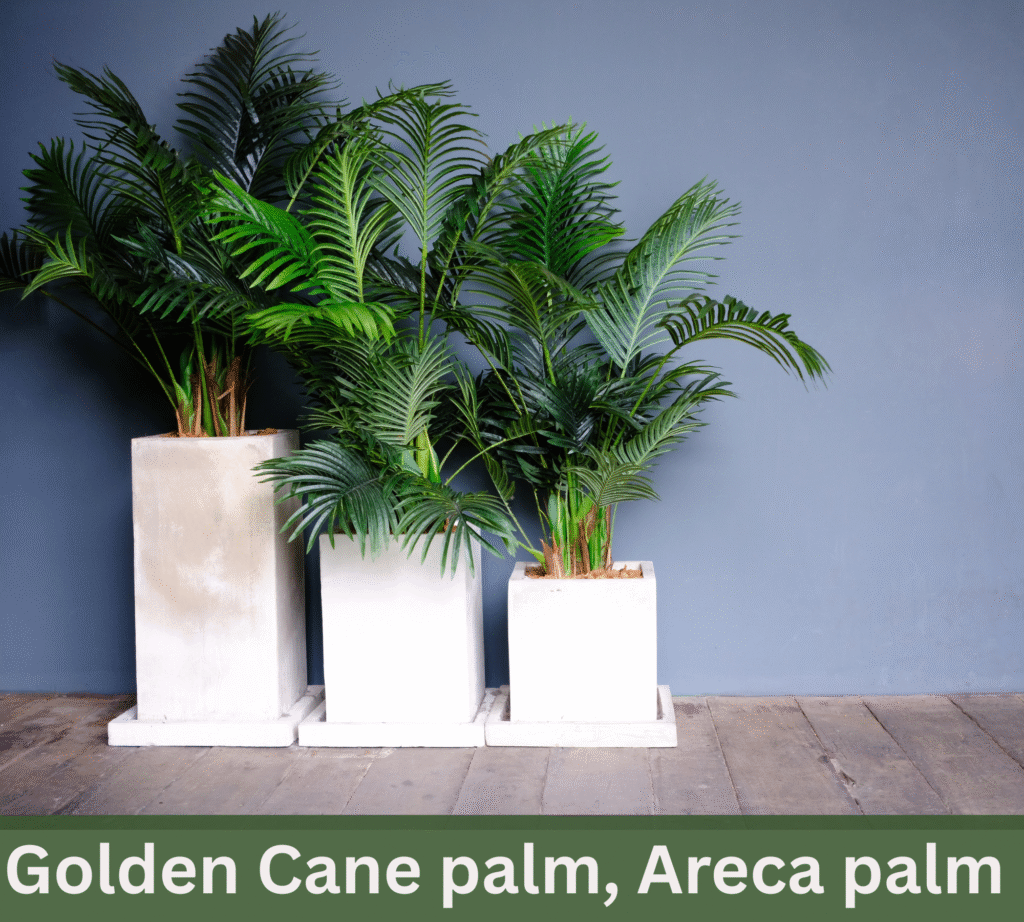
3. Indoor Golden Cane Palm (Low-Light Adapted)
When grown indoors, Golden Cane Palms adapt to lower light and slower growth.
Height: 1–2.5 metres indoors
Air-purifying qualities
Non-toxic to pets
Needs bright, indirect light and moist soil
💡 Great for: Living rooms, hallways, office lobbies.
4. Clumping Hedge Golden Cane Palms
Multiple clumps are planted closely to form a thick hedge.
Excellent for privacy and windbreaks
Fast-growing and dense
Grown in rows, 1 metre apart
💡 Great for: Backyard fences, pool screening, boundary lines.
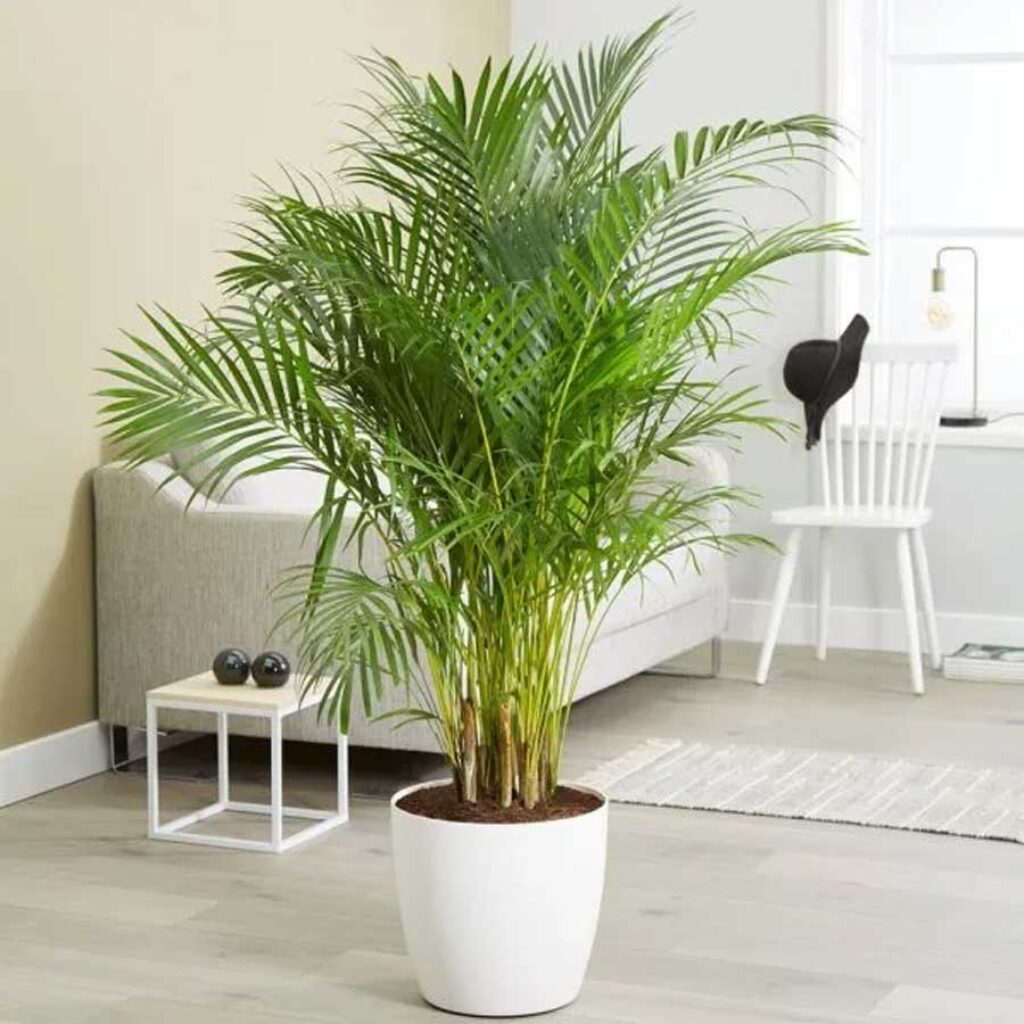
5. Golden Cane Palm in Landscaped Clusters
Used in modern designs with large rocks, mulch, and contrasting plants.
Mixed heights create visual interest.
Paired with cordylines, agaves, or bromeliads
Creates a tropical paradise feel
💡 Great for: Stylish front yards or designer landscapes.
Golden Cane Palm varieties are highly sought after not only in Australia but across the world.
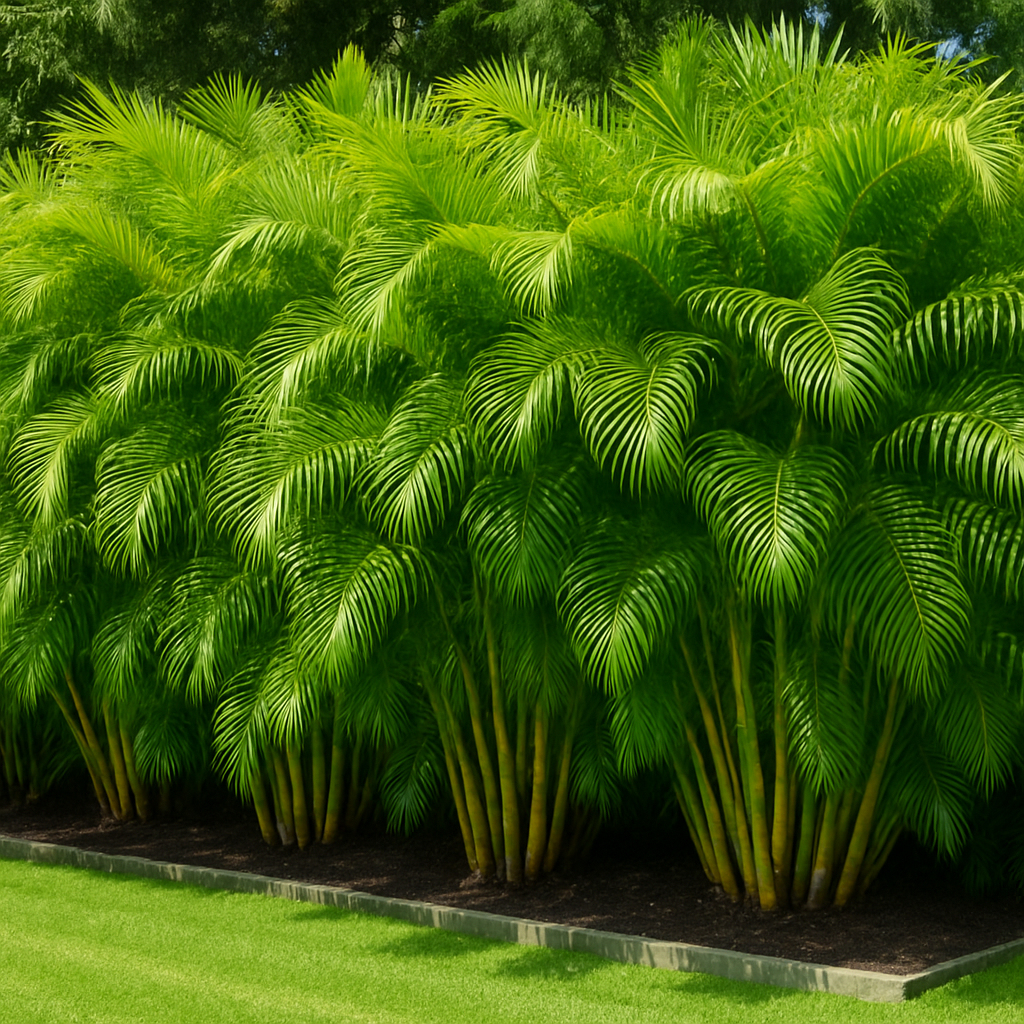
Bonus: Variegated Areca Palm – Not a True Golden Cane, But Close!
Some nurseries stock variegated palms that look like Golden Cane Palms but have striped leaves. These are usually other Dypsis or Chrysalidocarpus species and not true Golden Cane varieties, but they still give a similar effect.
✅ Choosing the Right Golden Cane Palm for Your Space
Location: Best Variety/Form
Small balcony, Dwarf or potted version
Indoor décor, Indoor form with filtered light
Backyard privacy: Clumping hedge
Tropical garden Standard in open soil
Front yard feature: Clustered landscape style
🌱 Tips to Keep Your Golden Cane Palm Happy
- Light: Morning sun with afternoon shade is best
- Water: Keep soil moist but not soggy
- Soil: Use well-draining, rich soil with compost
- Fertiliser: Feed with palm fertiliser in spring and summer
- Pruning: Remove dry or yellowing fronds only
Most Asked FAQs About Golden Cane Palms (Australia 2025 Edition)
Are there different types of Golden Cane Palms?
There’s only one species (Dypsis lutescens), but it comes in different sizes and uses, like indoor, dwarf, or hedging forms.
Can Golden Cane Palms grow in pots?
Yes! They grow beautifully in pots and make great patio or indoor plants.
How tall do Golden Cane Palms grow?
Outdoors, they can reach 6–8 metres; indoors or in pots, they usually stay under 2.5 metres.
Are they safe around pets?
Yes, Golden Cane Palms are non-toxic to cats and dogs.
Final Thoughts
Golden Cane Palms varieties may come from Madagascar, but they’ve found a real home in Aussie gardens. Whether you want a screening hedge, a potted beauty, or a lush indoor plant, there’s a Golden Cane Palm style to suit your space.



